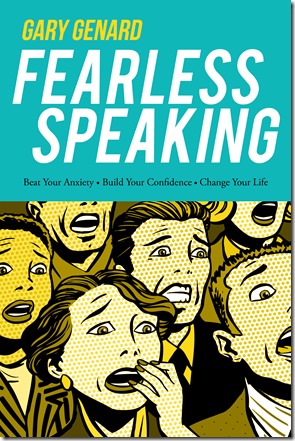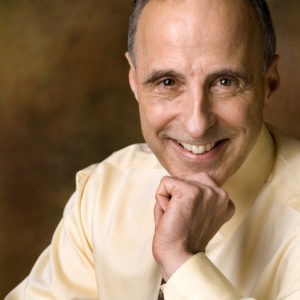What Causes Fear of Public Speaking?
Fear of public speaking may be the general term, but for each speaker there are distinct and enduring reasons why a turn at the lectern can be so fraught with anxiety.
- Are you battling a self-imposed expectation of perfection?
- Do you fear the gaps in your knowledge will make you look like a fraud?
- Are you prone to anxiety or fear?
- Do you worry you’ll repeat the mistakes of a particularly disastrous presentation?
Given the causes of public speaking are plentiful, it’s best to offer a solution that ideally works for that particular fear. Like any good diagnostician, when we speak with our clients, we want to get to the roots of their anxiety. Then, and only then, can we identify the tips and techniques that will best ease their fears.
First, you need to identify the why.
Why Do We Have Speech Anxiety?
Fear of public speaking can be easily understood if one considers just how normal it is to be anxious. Anxiety in and of itself is a reflexive and useful response we have developed to help us face difficult or dangerous situations – such as a threat, a tough decision, a presentation, or any time all eyes are on you. We become highly alert and focused – two qualities, incidentally, that can make for a great presenter.
However, if you become too hyper-focused on yourself – dwelling on those fears and doubts – that speech anxiety takes over.
Let’s move on to the how: How to identify your fear and how to better manage it.
How to Determine Your Public Speaking Fear and Anxiety
In Gary Genard’s book Fearless Speaking: Beat Your Anxiety, Build Your Confidence, Change Your Life, which I reviewed here, he identifies more than a half-dozen causes of speech anxiety. In the excerpt that follows, he offers insightful questions to help you get to the roots of your fear.
We encourage you to answer the questions honestly and candidly. It’s okay to answer, “Yes” to more than one of the eight causes. Once you’ve completed the entire exercise, however, go back and circle the name of the response that is strongest for you.
Knowing this information will help you to zero in on the fear reduction technique best suited to your situation.
1. Learned Response
Are you still influenced by a negative public speaking or performance situation that happened to you in the past? Did something “teach” you that public appearances are unpleasant, risky, or even dangerous? Have you been afraid to get up in front of others since then?
2. Anticipatory Anxiety
Does the thought of giving a speech or presentation cause you excessive anxiety beforehand? Do you worry constantly about the upcoming speaking situation, lose sleep, have no appetite, or fixate on what’s coming?
3. Mindreading
Do you believe you know what your audience is thinking? Can you “hear” them in your own mind challenging and criticizing you? Are you certain that their facial expressions reveal their true feelings toward you?
4. Fear of Appearing Nervous
Is your greatest fear that everyone will see how nervous you are? In other words, do you think, “If I appear truly nervous, everyone will realize I don’t know what I’m talking about!” Is this your big concern?
5. Fear of Going Blank
Are you afraid that nervousness and anxiety will make you forget everything you’re supposed to say? Do you picture yourself having a brain freeze? Are you convinced you’ll be unable to say anything or that you’ll forget key parts of your message?
6. Lack of Skills
Are you convinced that you simply lack talent as a public speaker and shouldn’t be up there? Are you afraid that you’ll be “found out” and your secret will no longer be safe?
7. Physical Reaction
Is your biggest problem the physical responses you have when you speak in front of others? Is your principal complaint dry mouth, pounding heart, gastrointestinal distress, racing pulse, sweating, shaky voice, gasping for breath, or other symptoms?
8. Performance Orientation
Is your principal concern that you have to be an excellent speaker? Do you compare yourself to other speakers, telling yourself you have to come up to their level? Is your skill in performance your major concern?
How to Overcome Your Fear of Public Speaking
When we work with our clients during our public speaking workshops, we zero in on these root causes so that we can better identify the strategies that will help to dispel the fear. Simply urging someone to “calm down,” or deny or dismiss the anxiety is a poor substitute for acknowledging and redefining it.
Once acknowledged, you can move on to the solution of how to reduce your fear of public speaking. Perhaps, it’s a matter of lightening up on yourself. No one expects you to be perfect. Or, you may want to replace negative thoughts with positive affirmations. Deep, intentional breathing nearly always helps. Some speakers find physical activity – a quick jog up the stairs, for instance – can clear the mind and alleviate the jitters.
Given anxiety and fear are a natural part of life, it stands to reason that it has its place when it comes to public speaking. It’s up to you as to how you will effectively embrace the apprehension and channel it to perform better.
Dread need not be your go-to emotion. Anxiety also can spur excitement, anticipation, expectation – all emotions that can sharpen and hone your skills as a public speaker.
Editor’s note: To learn the specific techniques that will help you address your primary source of public speaking fear, check out Gary’s book, Fearless Speaking: Beat Your Anxiety, Build Your Confidence, Change Your Life.





Definitely 2. I always go through at least one sense of free fall in the days or hours beforehand. The feeling passes, and I move on. Ultimately it serves as my wake-up call to tighten preparations. But those moments have produced all but one of the few anxiety attacks I’ve experienced, the exception being an ultimately benign medical matter.
I have to smile at 5. For me the fear is I’ll babble, not that I’ll freeze.